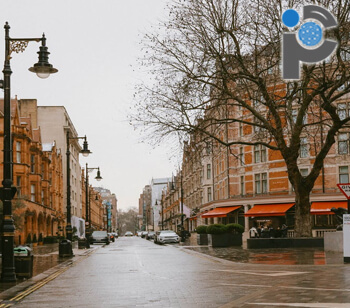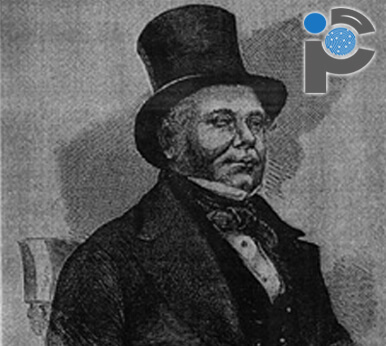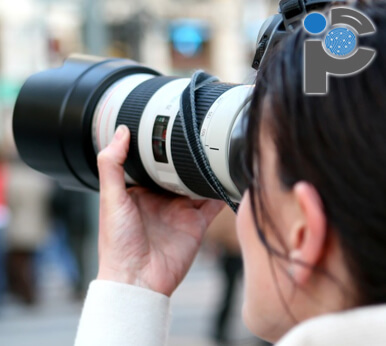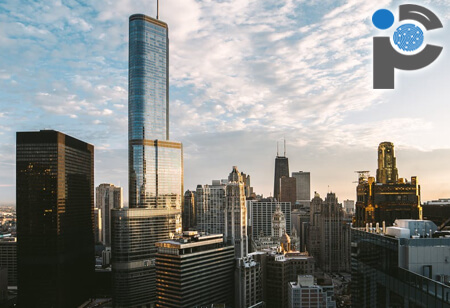How Private Investigators Find People in the UK
January 19, 2022 - Reading time: 10 minutes
Updated on: September 5, 2025
Overview
As a leading detective agency in the UK, we are often instructed to find people for many reasons. Clients ask us to trace debtors, former tenants, business partners, witnesses, old friends and relatives. A private investigator or tracing agent may be able to confirm a current address, phone number or workplace, depending on what is lawfully available.
The best approach depends on the facts. We start by reviewing what you already know, then select the most efficient and lawful route to a result. If you are interested in our people tracing service, contact us for a free consultation and include as much detail as you can.
1. People tracing using record searches
Record searches are the backbone of many traces. It is not just access to data that matters but knowing how to thread records together accurately. We combine lawful databases with public sources to build a reliable picture and reduce false matches.

Tracing to find a person’s address
Most clients want a current residential address. Where lawful, we may also confirm a phone number or other identifiers to help you make contact or pass to a solicitor or process server.
Tracing someone that owes you money
Debtor tracing is common. If someone owes you money and has moved on, early action usually improves results. Once located, you or your solicitor can consider next steps such as letters before action or service of court papers.
Tracing biological parents
These searches are sensitive. We handle them with care and discuss contact preferences and potential outcomes in advance. See our guide on how to trace biological parents in the UK.
Tracing hidden assets
If you suspect assets are being concealed, asset tracing can help identify property, company links or other holdings. This is usually a separate instruction and can support legal proceedings.
2. On-the-ground investigations
When desk research stalls, fieldwork can bridge the gap. This may include discreet visits to last known addresses, speaking with neighbours or site staff, or verifying occupancy. For example, where records were stale, an agent attended a former address and, posing as an old friend, confirmed the subject’s new address and phone number from a neighbour. Fieldwork is effective but carries time and travel costs, which we agree with you first.

3. Internet and social media research
Most people leave a digital footprint. Public posts often reveal locations, workplaces, contacts and routines. Cross-referencing usernames, photos, groups and historical posts can lead to an address or workplace that can be verified by follow-up checks or fieldwork. We only use lawful OSINT techniques and do not attempt to access private accounts.
4. Can you trace someone with just a phone number or email?
Sometimes, yes. Success depends on number type, country, activity history and what is lawfully available. Specialist resources can sometimes link a phone number to a name or address. An email address may appear in public data, old listings, domain records or online profiles that help connect the dots.
We do not access confidential subscriber data. That requires legal authority through a court or law enforcement. Where appropriate, we can advise on next steps with a solicitor.
5. What information helps to trace someone?
You do not need everything on this list, but more detail usually improves speed and accuracy:
- Full name and any previous names or spelling variations
- Date of birth or approximate age
- Any previous addresses and dates
- Known phone numbers or email addresses
- Employer, trade, industry or likely workplace
- Relatives, partners or known associates
- Social media usernames or profile links
- Any reference numbers from old paperwork or agreements
6. How long does people tracing take?
It varies. Straightforward traces can be resolved within a day if the data is fresh and consistent. If the subject moves often, uses multiple identities or has gone overseas, it may take several days or weeks. We will always give a realistic estimate at the start and update you as we progress.
7. How much does a trace cost?
Costs depend on complexity, geography and whether fieldwork is needed. Many UK traces can be quoted at a fixed fee when the brief is clear. International work or cases that require agents on the ground are usually time-based. For an accurate quote, contact us with the details you have and your goal, for example service of documents, re-establishing contact or pre-action enquiries.
8. Is people tracing legal in the UK?
Yes, when carried out lawfully. We work within UK data protection and privacy law. We rely on open sources, lawful databases and proportionate investigation. We do not obtain confidential records without legal authority and we do not misrepresent ourselves to gain restricted data. If a matter needs legal powers, we can liaise with your solicitor to consider court-approved routes.
Get a free consultation
To discuss a people tracing enquiry, visit the PrivateInvestigators-UK homepage or contact us. Include the person’s name, any dates of birth, previous addresses, phone or email details and your objective. We provide clear quotes and work discretely across the UK and overseas where required.
The History of Private Investigators
January 6, 2022 - Reading time: 12 minutes
Updated on: August 1, 2025
Investigators are not really a new phenomenon. One of the most common sorts of investigators is a private investigator. They have been in business for generations; these artists have fulfilled the wants of a broad spectrum of folks. In certain cases, private investigators are hired to investigate crimes, acquire evidence concerning someone's participation in a crime, run background checks on employees, or just gather information about someone.
There are a lot of reasons why private investigators are engaged, and they come in a range of sizes and forms. Many private investigators come from a background in the military or police. Then there are recent college graduates wanting to enter into the area of psychology or criminology and narrow their focus.
Find out how private investigators have grown through time to become a powerful investigative tool today in this informative article.
Year 1833: Eugène François Vidocq
French veteran, criminal and privateer Eugène François Vidocq formed the very first known private investigator agency in 1833, the Le bureau des resignments or "Office of Intelligence" and used ex-convicts to conduct tasks which the police officers of the day would not embark on.

Several times, authorities tried to shut down the situation. After solving an embezzlement case in 1842, authorities detained him on accusations of illegal confinement and obtaining money under false pretences. As a result of this, Vidocq subsequently came to believe that the whole thing had been staged. An appeals court freed him from a five-year prison term and a 3,000-franc fine. Private criminal investigations would not be what they are today without his contributions to the fields of record keeping, criminology, and ballistics.
Because of his contributions to the development of specific forms of inquiry and police investigations, this gentleman is well recognized. With this in mind, Vidocq has been formally credited with a variety of record-keeping and plaster casts of shoe imprints that he created to aid in operations. Several of his early ideas and investigative procedures were so important that the French police are still using them many years later.
The Start of Private Investigators
Immediately after Vidocq, the private investigation industry as we know it was formed. For many private investigators throughout the earlier years, it was a question of providing a service the police were unable or unwilling to provide. Pseudo-lawyers like those in the burgeoning private investigative sector played an increasingly key role, especially when it came to labour and employee relations.
Due to the French Revolution and men's liberation, the rich resource owners did not like the concept of controlling vast numbers of employees who had generated innovative ideas. When it came to solving situations that could only be resolved via the use of physical force, many private investigators were really nothing more than mercenaries and professional military firms working for the benefit of private clients.
Year 1850: Allan Pinkerton
Allan Pinkerton founded the Pinkerton National Investigative Agency in the United States in 1850, which provided security guards and detective services. At the time, Pinkerton was well-known for his role in thwarting an assassination attempt on President-elect Abraham Lincoln.

Pinkerton's agents provided a wide variety of services, from the equivalent of a privatized military contractor to the duties of security guards. When Pinkerton Detective Agency was at its peak, it had more agents than the United States Army, which prompted the state of Ohio to prohibit the agency because it might be used as a "private army," or militia.
During the labour strife of the late nineteenth century, corporate owners used Pinkerton security to protect protesters and alleged unionists out from their workplaces. When Pinkerton agents enforced Henry Clay Frick's strikebreaking methods in 1892, they ended up murdering numerous individuals. An eye with "We Never Sleep" emblazoned on it is what inspired the moniker "private eye".
These services are supplied in whole or in part by many respected private investigators in today's world since the commercial and private clients equally want detection, being undercover, security, and people tracking.
Year 1852: Inspector Charles Frederick Field
Inspector Charles Frederick Field, well known for his role in Inspector Charles Frederick Field in Household Words, is our next subject. Field wanted to be an actor, but he could not afford it, so he became a Sergeant in the Metropolitan Police's E division instead. In 1846, he founded the detective agency, which he ran until his retirement in 1852 as its chief.

Charles Frederick Field opened an investigation office in the United Kingdom in 1852 after he retired from the Metropolitan Police. Many times, even when it was not absolutely required, Field relished working as a detective in disguise owing to his theatre background.
As a result of their friendship, Dickens penned articles praising Field's work. Unhappy with the company's direction in 1862, Ignatius Paul Pollaky set established a competing agency. While nowadays Pollaky is almost forgotten, his renown in the 1870s and 1880s was so great that he was referred to in many publications and immortalized as 'Paddington' Pollaky for his 'sharp insight' in Patience, an 1881 comedic opera.
Moving Forward to the 21st Century
Private investigators have continued to evolve over the years and now offer a wide range of difference services to both private and corporate clients alike. Some detective agencies tend to focus more on infidelity related investigations and private clients for example, whereas others will focus their services on corporate clients and cases such as insurance investigation or due diligence; and there are numerous other niches which private detectives can choose to focus their businesses on.
Government licensing for private investigators can vary depending upon which jurisdiction you are in and the nature of the business. In the USA for example most states have licensing systems for PIs. In the UK however private detectives have remained largely unregulated.

Home Secretary Theresa May said in July 2013 that private investigators would have to be licenced by the Security Industry Authority (SIA) in order to operate legally. "In order to maintain lofty standards and protect people's privacy, it is essential that private investigators be subject to strict oversight" said Theresa May.
However these plans set out in 2013 were ultimately not introduced and at the time of writing this article private investigators remain unlicensed in the UK.
The answer as to whether or not a licensing system for private investigators would (or will) benefit the industry will vary depending on who you speak to. In the United States where licensing is prevalent, private investigators often charge considerably higher rates than they currently do in the United Kingdom. It is hard to predict the effect licensing may have on the industry overall; and it's understandable that many PIs would prefer to avoid the added bureaucracy and cost that a licensing system would potentially bring.
Private Investigators UK
With a large network of local investigators boasting years of expertise, Private Investigators UK cover the whole of Britain and beyond. Our detectives cover a full range of different services including infidelity investigations, missing people cases, as well as business and due diligence services. Close protection services and process serving are also offered by us.

Every effort is made to go beyond for the benefit of Private Investigators UK's customers. We provide excellent service to our clients and have extensive international expertise, making us one of the best detective agencies in the United Kingdom.
Services Provided by Private Investigators UK
In order to assist you with a delicate issue that you may be having difficulties with, Private Investigators UK has a team of investigators that can maintain complete confidentiality.
As private investigators, we do not depend on our luck, but on years of experience and a highly trained team to find the answers.
1. Background Checks
Private Investigators UK can run both internal and external background checks on an organization's employees. We are usually in charge of pre-employment screening, but may also be hired to investigate employee misconduct, harassment situations, and illegal or dishonest practices.
We can also help with corporate investigations; such as in the event that a potential merger or partnership is contemplated, we may look at security breaches, business risks, obligation, and unreasonable exchange practices.
2. People Searches
Is there someone you would like to track down but aren't sure how one goes about acquiring the necessary information? For private investigators, public records are a crucial source of basic information. Locating a person via public data is often the fastest and simplest option.
Private Investigators UK have invested in the most up to date tracing systems which gives a wealth of information and resources to clients that are looking to trace their family, friends, or debtors.
3. GPS Tracking
GPS tracking is a priceless tool for many private investigators. GPS tracking gadgets are not only useful for private investigators, and they are also safe, efficient, and cost-efficient. There are many justifications for tracking someone. It does not matter whether the investigation is civil or criminal in nature; private investigators may use GPS technology to gather evidence under the permitted circumstances.
GPS permits investigators to conduct the work even without personal invasion of being monitored and tracked in person by a private eye from a distance capturing images or video. GPS trackers typically allow us to provide surveillance on a more effective and cost efficient basis.
4. Infidelity Investigations
There are few things more stressful or devastating than being betrayed by a trusted friend or loved one. Disloyalty, embarrassment, and anxiety may be overwhelming. Even worse, you have no idea whether your sidekick or collaborator is working against you. Anxiety levels skyrocket just thinking about a spouse having an extramarital affair.
While dealing with the results of infidelity investigations can be hard in many cases, clients are typically glad to have found out the truth.
Private Investigators UK know how difficult it can be to deal with infidelity, which is why experienced private investigators are dedicated to helping you find the proof you need. They understand that you need a private investigator to get proof of adultery or disloyalty so that you can go on with your life.
5. Due Diligence on Business
In the business world, due diligence is a widespread practice. Legal counsel and executors could demand that a new company initiative be thoroughly researched before it can start. When screening prospective executives, business partners, suppliers, or contractors for suitability for the job, due diligence might be utilized.
When acquiring a firm, due diligence is indeed a part of the process. There are a number of benefits to this procedure, including determining the value of a company's assets and obligations, as well as its ability to generate income.
Further information
Private Investigators UK is one of the most well-known and well-established private investigation agencies in the UK. Specialists promise to address your case with the utmost respect and expertise, no matter how large or little it is. Visit the PrivateInvestigators-UK homepage learn more about the services offered by us, or get in touch for a free quote.
10 Tips for Finding a Missing Person in the UK
September 13, 2021 - Reading time: 23 minutes
Updated on: August 31, 2025
For emergencies call 999. For non-emergency police contact 101. Free charity helpline 116 000.
When someone you care about is missing, every minute feels heavy. The steps below keep you focused and improve the chances of a safe return. There is no waiting period to report a person missing in the UK. If you think they are at risk, call 999 now.
- Call 999 if the person is a child, is vulnerable, or you suspect danger.
- For non-emergency reporting call 101, or attend your local police station.
- Contact the Missing People helpline on 116 000 for support and advice.
- Keep one phone line free for incoming calls. Start a written log of times, sightings and calls.
1. Brainstorm and build a timeline
People do not simply vanish. Start a timeline from the last confirmed sighting to now. Record who saw them, what they wore, transport used, bank or phone activity, and any change to routine. Note medical needs or vulnerabilities such as dementia, learning disability, mental health crisis, or dependence on medication.
- List reasons they might withdraw or hide, such as conflict, debt, exploitation, coercive control or a recent trauma.
- Capture rumours as rumours. Mark each item as confirmed or unconfirmed.
2. Search online footprints
Check public profiles and recent posts for mentions of travel, events, conflict or distress. Look for new friends or groups. If you have lawful access and consent, check messages and calendars. Do not guess passwords or try to bypass security. The police can request data where necessary.
- Look for location tags, planned meet-ups, tickets, bookings, or lift-share arrangements.
- Scan email calendars and reminder apps for appointments that place them in time and space.
3. Check diaries, calendars and routine commitments
Review paper diaries, wall calendars and work rosters. Missed school, shifts, medical appointments or childcare can signal risk. Note bus or rail season tickets and gym attendance. Photograph pages rather than removing them, then share copies with police if asked.
4. Map their habits and common routes
Identify daily patterns: commuting routes, dog-walking paths, parks, shops, places of worship, clubs and support groups. Walk routes safely and in pairs if possible. Ask local businesses if they can check CCTV within 24 to 72 hours. Only the owner can access recordings. Police can make formal requests if required.
5. Consider risks and people of concern
List recent conflicts, threats, domestic abuse, stalking, gang pressure, county lines, loan sharks, or online harassment. Share this list with police. If a child is missing and you suspect abduction or serious risk, call 999. In some cases the Child Rescue Alert system can be activated by police.
6. Review recent device and browser activity
If you have permission, look for saved journeys, ticket receipts, journey planners, accommodation bookings and map searches. Check location sharing only if you have legitimate access. Record make, model and phone number for police. Do not attempt tracking tools you are not authorised to use.
7. Speak to the network
Start with those closest who were not already involved. Then widen out: neighbours, regular shop staff, fitness instructors, classmates, taxi firms used, faith leaders and any support workers. For young people, speak to friends with a parent or responsible adult present. Ask for times, directions of travel and who else was there.
8. Keep one phone line free for incoming calls
Keep your main number free for police, hospitals and the missing person. Use a second phone for outgoing calls. Set voicemail with a calm message asking for the caller’s name, number, time and any sighting details. Log every call with date and time.
9. Make sure someone is at home
Arrange a rota so the home address is covered. If they return, keep things calm. Offer water, warmth and medical help if needed. Do not force explanations on the spot. Let the police know as soon as they are safe.
10. Posters, social media and press
Speak to police or your investigator before going public. When ready, create a clear poster with a current photo, name, age, height, eye and hair colour, clothing, distinguishing features, last known location and time, and a police reference if you have one. Use high footfall areas and typical routes. Share digital versions online. Ask friends to share in local groups.
- Add a contact method that will actually be monitored, plus the police reference number.
- Send posters to places they may travel to, such as university towns, work sites or holiday areas.
What to prepare before calling the police
Information the police may request
- Full name, date of birth and recent photos
- Home address and other addresses such as student halls or a holiday home
- Medical conditions and medication needs
- Friends, partners and key contacts
- Places they visit and regular routes
- Items likely taken such as passport, bank cards, phone or car
- Clothing description and distinguishing features
- Last confirmed time and place seen, and by whom
Practical do’s and don’ts
- Do keep a written log of calls, sightings and decisions.
- Do ask neighbours and shops to retain CCTV where possible.
- Do share any risk factors such as self-harm, exploitation or domestic abuse.
- Don’t access accounts without permission. Let police handle data requests.
- Don’t post unproven allegations. Avoid naming possible suspects online.
- Don’t put yourself in danger during searches. Work in pairs where you can.
Who can help right now
Police: call 999 in an emergency, or 101 to report a person missing. You can report immediately. There is no 24 hour rule.
Missing People charity: free confidential help on 116 000 by phone or text. They support families and people who are missing or thinking of going missing.
Child Rescue Alert: a police-led system to alert the public to suspected child abductions or high risk child disappearances.
Why people go missing
Common drivers include relationship breakdown, bullying, debt, mental health crisis, neurodivergence without support, dementia, exploitation, county lines, forced marriage and online grooming. Sometimes the person chooses not to be found. Sometimes they are in harm without a way to call for help. Approach with care and keep records of facts rather than assumptions.
FAQs
- How soon can I report someone missing in the UK
- Immediately. If there is risk of harm, call 999. For non-emergencies, call 101 or go to a police station.
- What are police risk categories
- Police assess risk as high, medium or low and decide the level of response. Factors include age, health, vulnerability, past behaviour and the circumstances of the disappearance.
- What if the person returns
- Tell the police. Offer food, water and warmth. Note where they have been and any harm. Encourage a medical check if needed. Avoid interrogations.
- Should I contact the media
- Speak to police first. Media coverage can help or harm depending on the situation, especially where there is domestic abuse or stalking.
- Can I track their phone myself
- Only with their consent and lawful access. Police can request data where needed. Do not attempt hacks or location tools you are not authorised to use.
Glossary of key UK terms
- Missing Person Report (UK): the formal record made with police when someone cannot be located. There is no waiting period to report.
- High Risk: immediate risk of serious harm or vulnerability due to age, health, disability, threats or the circumstances.
- Medium Risk: risk of harm is likely but not serious. Requires an active and measured response.
- Low Risk: the level of risk is not considered immediate. The situation is monitored and reviewed.
- Child Rescue Alert: a police-led public alert for suspected abductions or high risk child disappearances across the UK.
- Missing People: UK charity offering free confidential support to missing people and families on 116 000.
- NCA Missing Persons Unit: national and international point of contact for UK missing persons and unidentified remains, supporting police forces.
Sources and useful links
- Police guidance on missing persons and the myth about waiting 24 hours. Reference Police.uk, Met Police, South Wales Police
- How to report and what information to prepare, including when to use 999 or 101. Missing People
- Missing People helpline. 116 000
- Child Rescue Alert overview. Child Rescue Alert
- National Crime Agency Missing Persons Unit. NCA MPU
Information here is for general guidance and does not replace police or legal advice.
Business Due Diligence Investigations in the UK
September 10, 2021 - Reading time: 3 minutes
Updated on: August 1, 2025
When entering into a business agreement, partnership, or investment, it's essential to understand who you're dealing with. At Private Investigators UK, we offer discreet and thorough due diligence checks to help you make informed decisions and avoid costly mistakes.
What is Due Diligence?
Due diligence is the process of verifying facts, claims, and reputations before making a commitment. It’s about identifying red flags early — whether financial, legal, or personal — and protecting your interests.
Our investigators conduct due diligence on individuals and organisations, using a combination of digital research, background checks, document verification, and field investigation where required.

When Should You Use a Private Investigator for Due Diligence?
- Before entering into a business partnership or joint venture
- When onboarding a high-level employee or contractor
- Before accepting private investment into your company
- To verify the legitimacy of a company or foundation
- During disputes, litigation, or asset tracing
What Do We Check?
Every case is tailored, but common checks include:
- Identity and background verification
- Criminal records and legal history
- Company ownership and directorships
- Financial red flags (CCJs, bankruptcies, past fraud)
- Reputation and media coverage
- Social media and online footprint
- Hidden connections or conflicts of interest
Why Use Private Investigators UK?
Unlike automated database checks, our work goes deeper. We combine public records with investigative techniques to uncover information that’s easily missed by basic compliance software. Our team includes specialists in corporate investigations, tracing, and surveillance.
Whether you’re about to invest in a business, bring someone into your company, or just want peace of mind, we can help you assess the risks before you commit.
Contact Us
Get in touch with Private Investigators UK to discuss your due diligence needs. All inquiries are handled in strict confidence, and we offer a free, no-obligation consultation.
You are reading the PrivateInvestigators-UK blog — home to the UK's leading detective agency. Learn more about us by visiting our homepage PrivateInvestigators-UK.com.